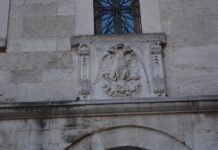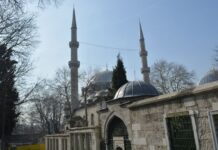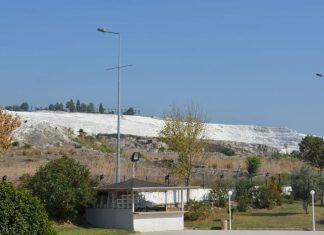The horoscope group is complete in its ancient Iranian religious characteristics and Bulgarian foundations. The symbol of the Sun is realized in the equestrian; the lion denotes the Regales star; the dog stands for the Moon.
The date, which has been pointed out by computer analysis as the event of the horoscope logic and composition of Madera Relief, is 24 August 165 AD and the time is 1 to 6 pm. In other words, the rock monument encodes the sacred initiation of the statehood as high virtue, marking the same year, as does the Name-List of Bulgarian Kans.
Nevertheless, the pre-Christian epoch left fewer traces in Bulgarian civilization. Not I only because of their natural or deliberate deletion, but also because of the relatively limited repertoire of themes and subjects.
It is not by chance that the so-called “Golden § Age” of Bulgarian spirituality developed in I that period. It is the time of Christianization I in the middle of the 9th century until the end I of the rule of Tsar Petar in the 60s of the 10th century. What was created astonishes with its scope and genre diversity. In the 10th century, the educated Bulgarian knew, by means of translations from Greek, the most important works of Antiquity.
Occupation by Byzantium
In the works less abundant in themes and volume, after the occupation by Byzantium, the memories of the former independence predominate. Immediately after the reconstruction of the state at the end of the 12th century, the traditions of translated literature and authors` compositions were revived. The self-awareness of belonging to the world of Orthodoxy and the self-confidence of its preservation in fast changing circumstances of the 13th-! – » centuries was the background to many lite; fray works of the so-called prophetic cycle the foretelling of the “end of the world”
I was dictated by the troubled time and the intuitively perceived approach of the end of the Balkan Christian states. In the numerous prophesies of Daniel, Isaiah, Sibil, Pandeh and others, the Bulgarians were pointed out as a people, who had defended and kept the truths of Christianity and who had not had to compromise as the Byzantines had.
The data on the law enforcing practices of the early state structures contain valuable information about the public regulatory mechanisms and principles as reflections of a particular type of value system. We have little information on the legal system of the Volga Bulgarians until the 10th century when they officially adopted Islam and were discovered by the Arabic geographers and travelers.
It seems that their juridical culture was based on common law traditions and on syncretism. Indirect data are found in Tractate (Risala) of the Arab diplomat and specialist of Islam law, Ibn Fadlan, who visited Volga Bulgaria in the 10th century. In me, 922, the Caliph of Bagdad, at the request of the Bulgarian ruler, Almush, sent him.
Read More about Private Bulgaria tours Yachting








